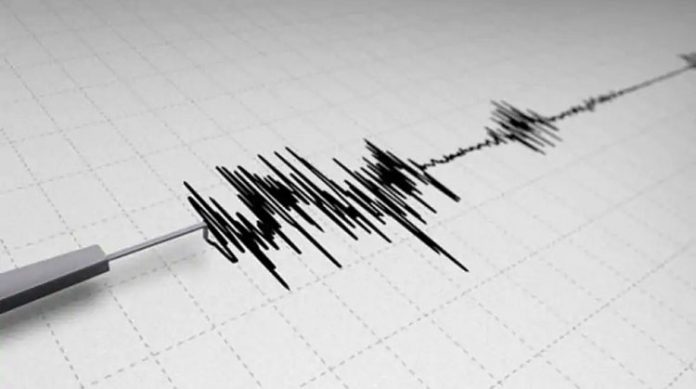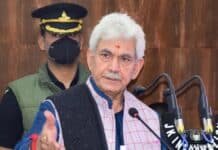
SRINAGAR — The devastation caused by earthquakes in Turkey and Syria is a “wakeup call” for Jammu and Kashmir as the Northern Himalayas is prone to natural disasters with experts calling for various preventive measures to minimize the damages.
On Tuesday, people across several north Indian states including Kashmir experienced a strong tremor as an earthquake of 6.6 magnitudes on the Richter scale hit Fayzabad in Afghanistan.
Most parts of Jammu and Kashmir come under Seismic Zone IV and V and are vulnerable to earthquakes. Experts give varied reasons for earthquakes in J&K including various faults that run through this part of the Himalayas and exploding gases.
According to official figures of the Indian Meteorological Department, over 30 earthquakes occur on average annually in Jammu and Kashmir. In the last five years, around 150 earthquakes hit J&K, mostly with a magnitude of 3-5.
Besides, landslides, flash floods, avalanches and land subsidence is a regular phenomena in Kashmir Himalayas.
One of J&K’s top geologists, retired Professor of Jammu University, Manzoor Ahmad Malik said that studies indicate that a high magnitude earthquake could occur in Kashmir Himalayas “but we can’t predict the timing”. “Since we have a fragile ecosystem, we need adequate safeguards to minimize the damages,” he told the news agency KINS.
Elaborating further, he stresses enforcing building codes. Similarly, Malik advised people not to make constructions on slopes and higher areas which are prone to avalanches or flash floods.
In 2005, an earthquake occurred in Muzaffarabad in Pakistan and also parts of J&K in India, killing thousands of people.
One of the world’s top geologists from the United States, Roger Bilham, has also predicted a magnitude 9.0 earthquake in Kashmir valley. According to Bilham, a major earthquake in Kashmir can trigger landslides which would dam the Jhelum River and plunge the valley underwater. Bilham has, however, put no timeframe for his predictions.
Well-known geologist and Vice Chancellor of the Islamic University of Sciences and Technology (IUST), Professor Shakil Ahmad Romshoo said in a tweet, “Let us work hard to build a culture of disaster preparedness in the society to minimize human and infrastructure damage in the eventually of a high magnitude earthquake.”
In another post, he said, “Thousands have died and hundreds have flattened after earthquakes struck Turkey and Syria. It is a wakeup call to remind us about our vulnerability to earthquakes in the Indian Himalayas.”
Dr. Irfan Rashid, who teaches at the Department of Geo-informatics, University of Kashmir also called for proper coding of buildings to make earthquake-resistant structures. “In Srinagar outskirts, we have seen constructions have come up on wetlands. These areas will suffer more damages during any major earthquake,” he said.
He said the Himalayas are also witnessing an increasing threat of Glacial Lake Outburst Flooding (GLOF). “GLOFs remain a persistent threat to downstream communities. When a lake is built up, a major earthquake could cause an outburst. If a population lives downstream of less than 20 kilometers away from a glacial lake, then the threat is bigger,” he added.
GLOF is the term scientists use to describe the incident when the water levels of glacial lakes breach their boundaries, causing large amounts of water to flow into nearby streams and rivers. Experts attribute GLOFs to climate change and the melting of glaciers.
Akhtar H Malik, a Botanist at the University of Kashmir stresses afforestation, especially in the upper reaches. “We need to plant more and more trees on slopes and mountains to minimize damages due to disasters. Plantation strengthens the soil and reduces erosion of land and also minimizes damages during disasters,” Akhtar said.
Follow Us
The Kashmir Pulse is now on Google News. Subscribe our Telegram channel and Follow our WhatsApp channel for timely news updates!










